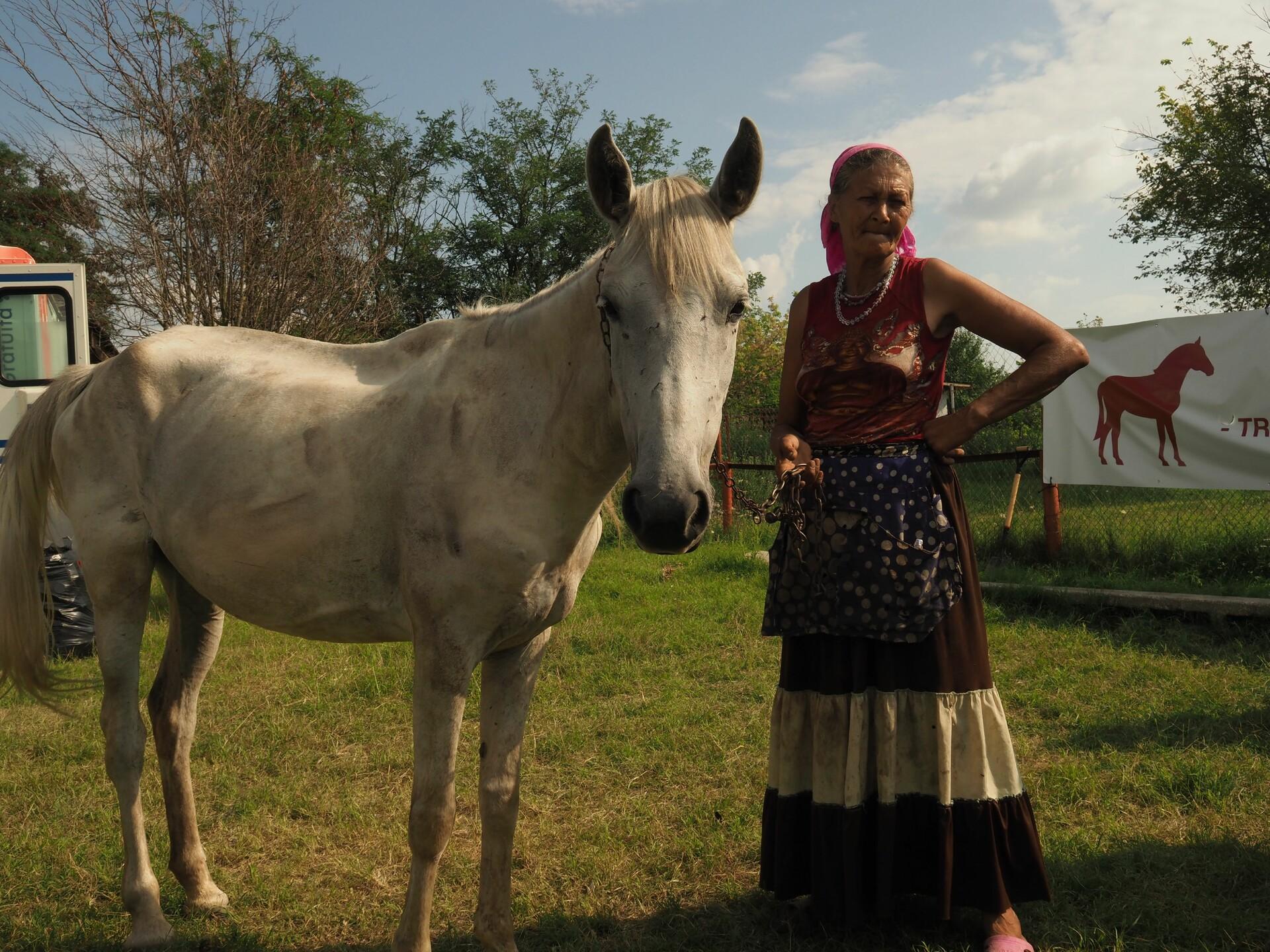
Working horses in Romania
They are often overworked with inadequate veterinary care
In Romania, about three percent of the population consists of Roma. The approximately 600,000 Romas are among the poorest populations in the country. They lack education and work, leading to a life in poverty, during which they are dependent on working horses that often suffer from being held in poor conditions. Working horses in Romania have to pull heavy vehicles day in day out. Animals and humans lack everything that is needed for a good life, and because of the hard work and poor keeping conditions, the animals suffer from malnutrition, painful colics, lameness and other ailments. The animals are overworked, they do not get adequate veterinary care, and have bad or no hoof. Their keepers lack the financial resources to help their horses and are barely aware of their needs, while heavily relying on them. We want to help.
FOUR PAWS helps working horses
We want to significantly improve the working and living conditions of Roma horses. That's why we are there to help with our project in Romania with
- regular veterinary treatments
- appropriate hoof fitting and care
- suitable harness for the horses
- dental care and deworming.
Sustainable help through education
In order to improve the life of the horses in the long term, the keeping conditions must change. Therefore, in addition to the acute assistance and veterinary care of the animals we are provide training for their owners. We begin by informing the horse owners about the needs of the animals, the appropriate housing conditions and suitable shoeing. They learn about the correct feeding and health care of the horses. We want to start with the children in the community and teach them how to look after animals.
Hoof and medical care
Since 2017, we research the conditions of the working horses on site and have visited several communities. This year we have been able to provide assistance to the local horses in Soimu, Frumoasa and twice in Smardiosa in collaboration with ARCA (Animal Rescue and Care Association). In the process, we provided the horses with veterinary care, looked after hoof care and loss, and talked to the owners about appropriate living conditions.
Next steps
In the long term, we focus on building trust and education in the Roma community. With further trainings we would like to reach the children and educate them and their parents about necessary improvements in the keeping of the horses. We also plan further visits and cooperations with local veterinarians and farriers.

